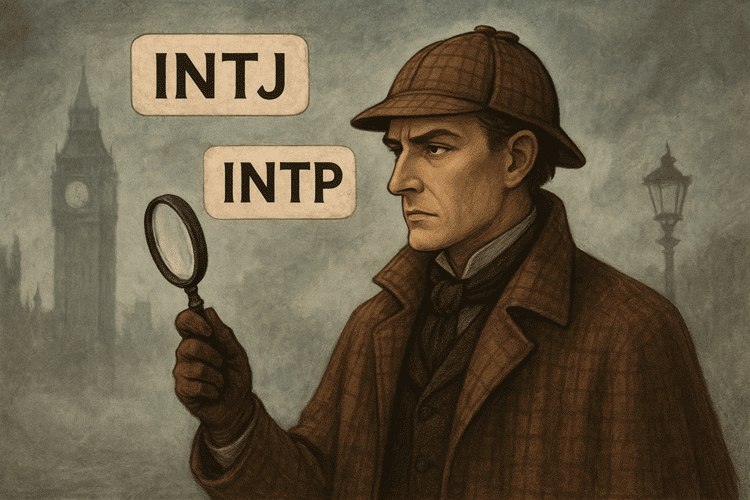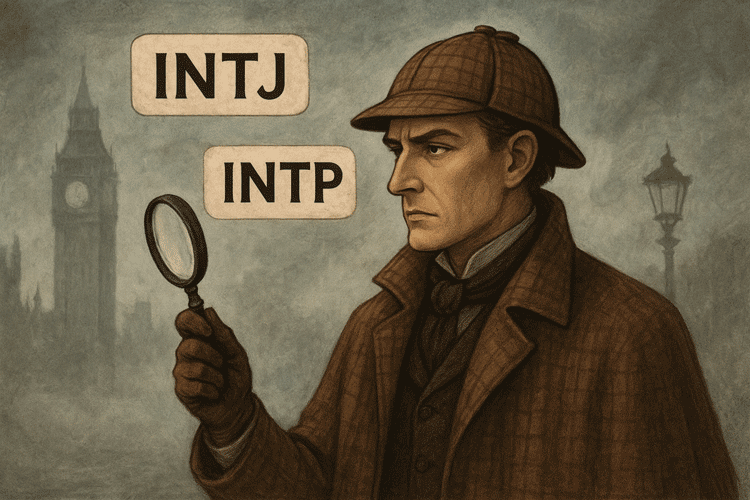What MBTI Type is Sherlock Holmes? A Deep Personality Analysis
The answer to the question “what MBTI type is Sherlock Holmes” has long fascinated fans of psychology and literature, and in this article, we will deeply analyze whether Sherlock Holmes fits the INTJ or INTP personality type and what this means for understanding his character.
Introduction
When discussing what MBTI type is Sherlock Holmes, scholars and enthusiasts often split into two camps: some argue that Holmes is the quintessential INTJ, with his strategic, foresight-driven methods; others believe he embodies the INTP, the logical analyst constantly dissecting the world through detached reasoning. This article will explore Holmes’ traits, cognitive functions, relationships, and cultural portrayals to answer the question: what MBTI type is Sherlock Holmes?
The MBTI Framework: A Quick Overview
Before we dive into what MBTI type is Sherlock Holmes, let’s briefly review the MBTI. The Myers-Briggs Type Indicator (MBTI) divides personalities into 16 types, built on four dichotomies:
Extraversion (E) vs. Introversion (I) Sensing (S) vs. Intuition (N) Thinking (T) vs. Feeling (F) Judging (J) vs. Perceiving (P)
Two types stand out in discussions of Holmes: INTJ (the Mastermind/Strategist) and INTP (the Logician/Thinker). Both share introversion, intuition, and thinking, but differ in their approach to structure (Judging vs. Perceiving).
Why Some Believe Sherlock Holmes Is an INTJ
Supporters of the INTJ theory argue that Holmes’ ability to plan ahead, strategize, and execute with precision reflects the INTJ personality.
Dominant Ni (Introverted Intuition): Holmes excels at recognizing deep patterns from minimal clues, such as reconstructing a person’s life from a footprint or cigar ash. Auxiliary Te (Extraverted Thinking): His reasoning is often outcome-oriented and pragmatic—he doesn’t theorize for fun but to solve cases. Judging Trait: Holmes dislikes disorder, becomes impatient with trivialities, and shows a strong need for closure in investigations.
Example: In The Hound of the Baskervilles, Holmes meticulously predicts the behavior of his adversary, demonstrating a strong reliance on foresight and planning—hallmarks of an INTJ.
Why Others Argue Sherlock Holmes Is an INTP
On the other hand, many argue that Holmes is an INTP—the eternal analyzer.
Dominant Ti (Introverted Thinking): Holmes constantly refines internal frameworks, sometimes testing theories without caring about practicality. Auxiliary Ne (Extraverted Intuition): He generates multiple hypotheses, exploring possibilities before narrowing them down. Perceiving Trait: Holmes often appears disorganized in daily life, with papers and chemical experiments scattered around.
Example: In A Study in Scarlet, Holmes shows little interest in anything outside his specific focus, a sign of Ti-driven intellectual tunnel vision.
Cognitive Function Breakdown
To fully understand what MBTI type is Sherlock Holmes, we must analyze his cognitive functions in detail:
INTJ Cognitive Stack:
Ni (Pattern recognition) – Long-term vision, predicting outcomes. Te (Efficiency & logic) – Implementing practical solutions. Fi (Personal values) – Hidden but occasionally seen in his justice-driven motives. Se (Observation) – Keen awareness of sensory detail, though often secondary.
INTP Cognitive Stack:
Ti (Internal logic) – Precise, framework-driven analysis. Ne (Possibility generation) – Speculative reasoning and brainstorming. Si (Memory recall) – Using accumulated knowledge selectively. Fe (Social harmony, weak) – Often awkward in relationships, seen in Holmes’ detachment.
Comparing Holmes With Other Fictional Detectives
One way to decide what MBTI type is Sherlock Holmes is to compare him with other detectives:
Hercule Poirot (likely ISTJ): Detail-oriented, methodical, unlike Holmes’ abstract leaps. Miss Marple (possibly INFJ): Relies on insight into human nature, contrasting Holmes’ logic. Batman (often typed as INTJ): Shares Holmes’ strategic foresight, but is less chaotic in daily life.
This comparison suggests Holmes may lean closer to INTP in habits, though INTJ in outcomes.
The Holmes–Watson Dynamic: A Personality Contrast
Sherlock Holmes cannot be understood without Dr. John Watson. If Holmes is INTJ or INTP, Watson is likely an ESFJ or ISFJ—loyal, grounded, and people-oriented.
Watson stabilizes Holmes with emotional warmth and practicality. Holmes challenges Watson with intellectual puzzles. Their contrasting MBTI types create a balanced partnership of logic and empathy.
Holmes Across Cultures: A Shifting MBTI?
The question what MBTI type is Sherlock Holmes becomes more complex when considering adaptations:
Conan Doyle’s original Holmes: More detached, analytical, often closer to INTP. BBC’s “Sherlock” (Benedict Cumberbatch): Portrayed with INTJ traits—strategic, cold, calculating. “Elementary” (Jonny Lee Miller): Combines INTP curiosity with INTJ decisiveness.
Different cultural lenses highlight different aspects of Holmes’ MBTI type.
Psychological Perspectives: Beyond MBTI
Some psychologists suggest Holmes also shows traits of Asperger’s syndrome, ADHD, or high-functioning autism, which overlap with MBTI characteristics. His hyper-focus, social detachment, and obsessive problem-solving add nuance to the INTJ/INTP debate.
Lessons for Readers: If You Share Holmes’ MBTI
If you discover that your type is similar to Holmes, whether INTJ or INTP, you might share his strengths and challenges:
Strengths: Analytical ability, innovative thinking, ability to connect disparate ideas. Challenges: Difficulty with emotions, impatience with inefficiency, social misunderstandings. Careers: Science, law, data analysis, strategy, investigative work.
By studying what MBTI type is Sherlock Holmes, readers can better understand how their own personality traits can be harnessed productively.
Conclusion
So, what MBTI type is Sherlock Holmes? The evidence suggests a blend of both INTJ and INTP traits. His strategic foresight aligns with INTJ, while his chaotic lifestyle and constant theorizing lean INTP. Perhaps the true genius of Holmes lies in his ability to transcend MBTI boundaries, embodying a unique combination of personality traits that make him timeless.
Most analyses suggest that Sherlock Holmes is either an INTJ or an INTP. His sharp pattern recognition, strategic foresight, and logical problem-solving align with INTJ traits, while his experimental, detached, and purely logical reasoning often reflects the INTP personality. The debate continues, but both types highlight his intellectual dominance and unconventional thinking style.
The confusion arises because Sherlock Holmes demonstrates qualities from both personality types. His INTJ side shows in his long-term planning, efficiency, and ability to connect patterns instantly. On the other hand, his INTP side appears in his curiosity-driven experiments, love of abstract logic, and disinterest in social conventions. Depending on which traits are emphasized, readers may type him differently.
Exploring Sherlock Holmes’ MBTI type helps us understand how different cognitive functions influence behavior. It also shows how fictional characters can embody multiple traits, making them complex and realistic. Whether you view Holmes as an INTJ or INTP, the discussion deepens our appreciation of MBTI as a tool for personality analysis and encourages readers to reflect on their own type.







